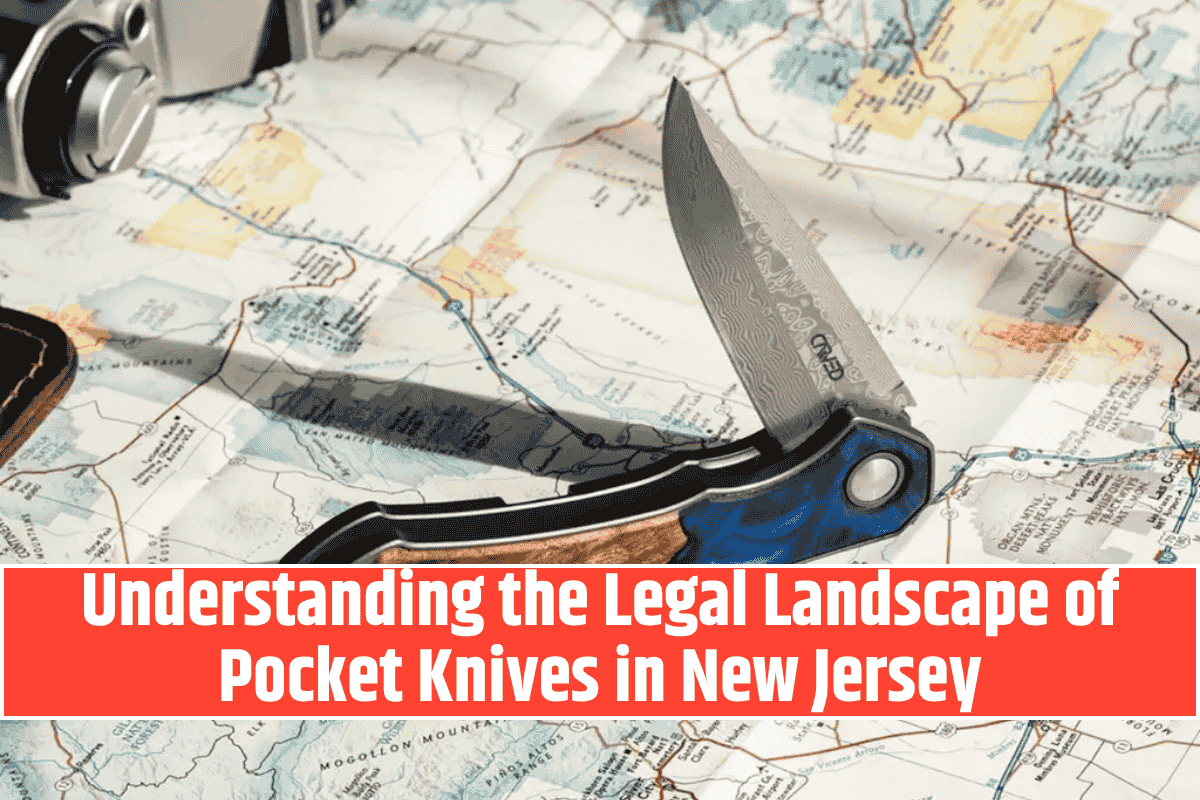New Jersey has strict and complex laws when it comes to owning, carrying, and using knives. Whether you’re a resident or a visitor, it’s important to understand these laws to avoid any legal issues.
This article provides a breakdown of New Jersey’s knife laws, covering which knives are legal or illegal, rules around carrying them, places where they are restricted, exceptions for law enforcement and military personnel, and the consequences of breaking these laws.
Types of Knives in New Jersey
Legal Knives
In New Jersey, certain knives are allowed for personal ownership and use. Some examples of legal knives include:
Kitchen knives
Pocket knives (with a blade length generally under 5 inches)
Utility knives
These knives can be possessed and used for everyday purposes, as long as they comply with state regulations, including blade length restrictions.
Illegal Knives
New Jersey prohibits the possession or carry of specific knives, mainly due to their potential use as weapons. These illegal knives include:
Gravity knives
Switchblade knives
Dagger and dirk knives
Ballistic knives
Stiletto knives (if intended for unlawful use)
Owning or carrying these knives in New Jersey can lead to criminal charges.
Carrying Laws in New Jersey
Open Carry
New Jersey does not specifically ban the open carrying of legal knives. However, if the intent behind carrying the knife is unlawful, or if it is carried in places where knives are restricted, it could result in legal trouble. So while open carry of a legal knife may not be prohibited, it is important to be aware of the context and location.
Concealed Carry
The concealed carry of knives is heavily regulated in New Jersey. Carrying a knife in a hidden manner is not illegal by itself, but it is prohibited if the knife is being carried for an unlawful purpose.
For example, if someone carries a knife concealed for self-defense, it may be legal, but carrying it concealed with intent to harm or commit a crime is illegal.
Restricted Locations
Certain locations in New Jersey have strict rules regarding the possession and carry of knives. These locations include:
Schools and educational institutions
Government buildings
Public transportation facilities
Airports
Public assembly areas (e.g., sports stadiums, concert halls)
Carrying a knife in these restricted locations could lead to criminal charges, so it is essential to be aware of where knives are prohibited.
Exceptions for Law Enforcement and Military Personnel
Law enforcement officers and members of the military are generally exempt from many of the restrictions on knives, both during and outside their official duties.
This means they may be able to carry knives in situations where civilians are prohibited, as long as they are doing so in the line of duty.
Consequences of Violating Knife Laws
If someone violates New Jersey’s knife laws, they can face serious consequences. These penalties may vary depending on the specifics of the violation, but could include:
Fines
Imprisonment
A criminal record
The severity of the punishment depends on the type of knife involved, the purpose for carrying it, and the location of the violation. Violating knife laws can have long-lasting consequences.
New Jersey’s knife laws are designed to regulate the possession, carry, and use of knives within the state to ensure safety. It is important to understand which knives are legal and which are prohibited, as well as where and how you are allowed to carry them.
Remember, law enforcement and military personnel have certain exemptions, but for the general public, adhering to these laws is crucial. Whether you are a resident or visitor, staying informed and compliant with these regulations will help avoid legal issues.












